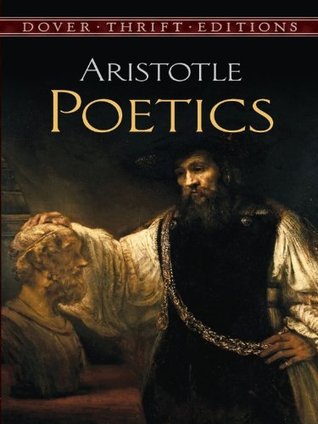More on this book
Community
Kindle Notes & Highlights
Poetry in general seems to have sprung from two causes, each of them lying deep in our nature. First, the instinct of imitation is implanted in man from childhood, one difference between him and other animals being that he is the most imitative of living creatures, and through imitation learns his earliest lessons; and no less universal is the pleasure felt in things imitated.
They differ, again, in their length: for Tragedy endeavours, as far as possible, to confine itself to a single revolution of the sun, or but slightly to exceed this limit; whereas the Epic action has no limits of time.
The Plot, then, is the first principle, and, as it were, the soul of a tragedy: Character holds the second place.
Character is that which reveals moral purpose, showing what kind of things a man chooses or avoids.
Poetry, therefore, is a more philosophical and a higher thing than history: for poetry tends to express the universal, history the particular.
Tragedy is divided — namely, Prologue, Episode, Exode, Choric song; this last being divided into Parode and Stasimon.
Actions capable of this effect must happen between persons who are either friends or enemies or indifferent to one another. If an enemy kills an enemy, there is nothing to excite pity either in the act or the intention, — except so far as the suffering in itself is pitiful.


